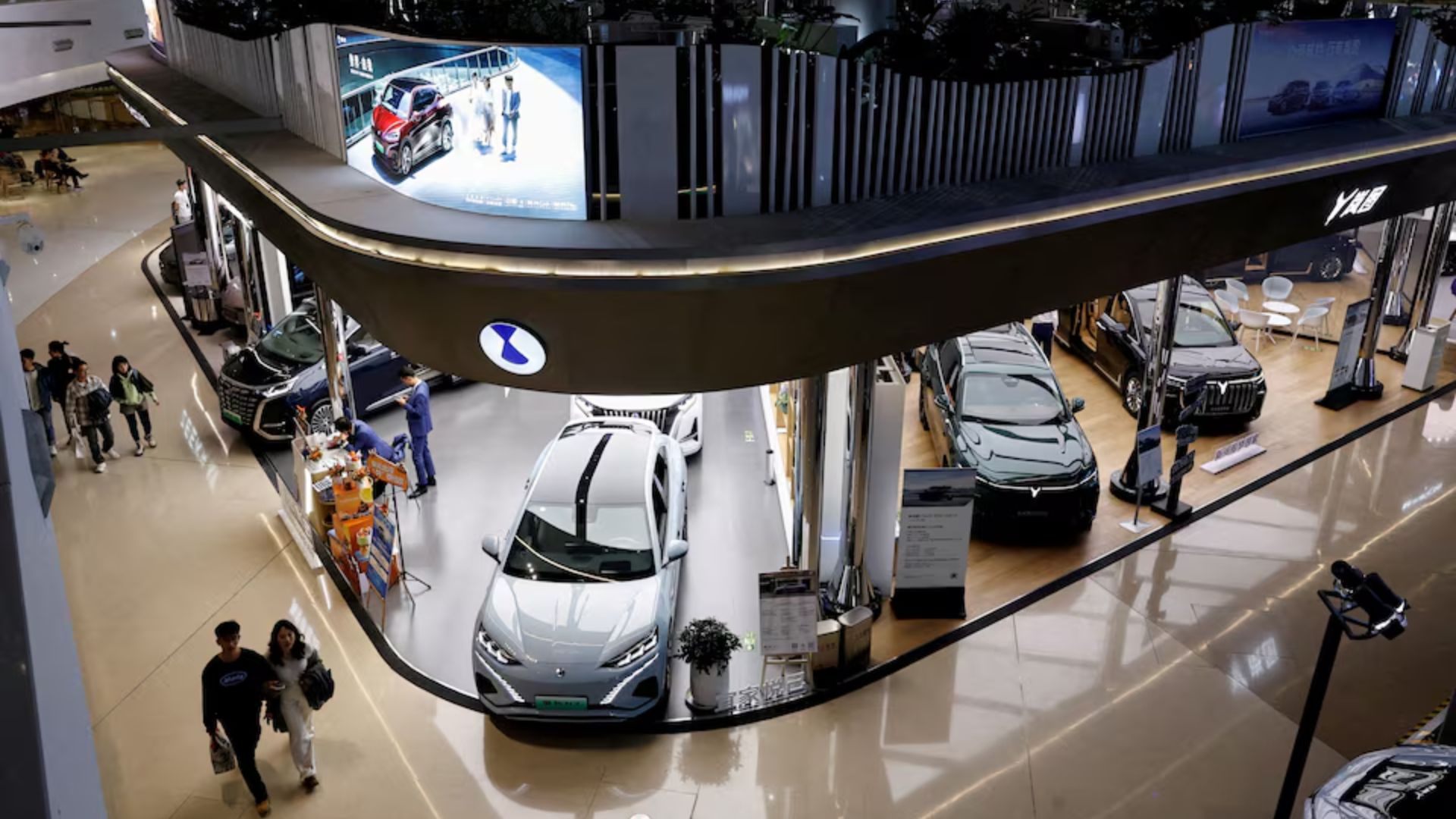BEIJING, (Reuters) – Sales of electric passenger vehicles in China rose 10.5% in March from the same month a year earlier, industry data showed on Tuesday, as automakers led by popular BYD deepened discounts and offered financing tools to boost sales.
For January-March, sales totalled 1.03 million EVs, up 14.7% on year and the slowest quarterly growth since the second quarter of 2023, the data from the China Passenger Car Association (CPCA) showed.
New energy vehicles (NEV) including all-electric models and plug-in hybrids made up 41.5% of overall passenger car sales in March, which jumped 5.7% to 1.71 million vehicles.
Authorities have joined automakers in trying to convince consumers to buy cars to help jumpstart a sluggish economy. Initiatives include revising car loans to promote auto trade-ins and scrapping government-set minimum down payments for new-car purchases.
The launch of an electric sedan by electronics maker Xiaomi last month prompted rivals to announce further price cuts and subsidies.
BYD, which ceded the top EV seller title to U.S. peer Tesla in the first quarter, in March lowered starting prices for nine models including four under its premium brand Denza by 4% to as much as 20.5%.
BYD Chairman Wang Chuanfu forecast falling profit margins this year as the price war intensifies, but said the automaker would ensure stable profitability by improving sales. It is targeting 20% sales growth this year.
The auto sector’s profit margins have fallen to 4.3% from 8.7% in 2015, said Cui Dongshu, the CPCA’s secretary general.
Tesla hiked Model Y prices in China by 5,000 yuan ($691.24) starting April 1, but also offered a time-limited zero-interest financing scheme for buyers of the base Model 3 model.
Volkswagen and Nio have also launched auto financing plans with low interest rates to attract buyers.
Tesla exported 26,666 China-made vehicles in March, down 11.8% from the previous month, the association data showed. China’s overall car exports jumped 39% to a record monthly high of 406,000 units in March, quickening from February’s 18%.
In response to comments by Treasury Secretary Janet Yellen on how Washington would not allow Chinese exports to decimate the U.S. industry, Cui said: “China’s new energy vehicle sector has yet to reach severe overcapacity levels and the current reasonable output bodes well for consumers and a market-oriented economy.”
($1 = 7.2334 Chinese yuan renminbi)
Reporting by Qiaoyi Li, Zhang Yan and Brenda Goh; Editing by Christopher Cushing and Kirsten Donovan and Miral Fahmy











